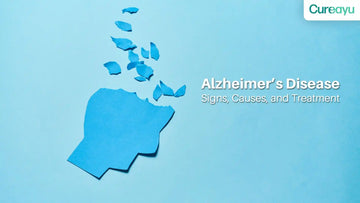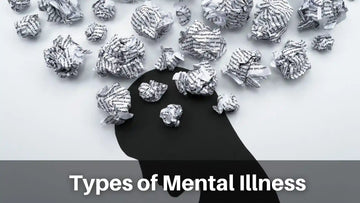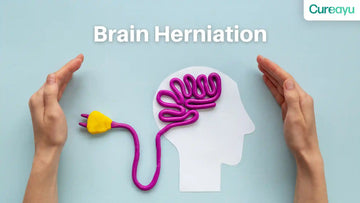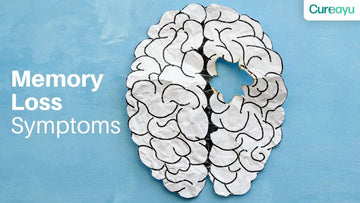Alzheimer’s disease is a progressive neurological disorder that affects millions of people worldwide, causing a slow decline in memory, thinking, and reasoning skills. This disease primarily impacts older adults, although early-onset Alzheimer's can affect younger individuals as well. One of the biggest challenges in Alzheimer’s care is that many of its early symptoms are often mistaken for normal aging, leading to delayed diagnosis and treatment.
Recognizing the symptoms of Alzheimer's disease at an early stage can help individuals seek timely medical care, potentially slowing the disease’s progression. This blog will delve into what Alzheimer’s disease is, its symptoms, potential causes, treatment options, and when to seek medical help. Understanding this disease is the first step toward managing it effectively and improving the quality of life for both patients and caregivers.
Also Read: Boost Your Brain: 10 Proven Ways to Keep Your Brain Healthy
What Is Alzheimer's Disease?
Alzheimer's disease is a chronic, progressive brain disorder that destroys memory and cognitive functions. It is the most common form of dementia, a general term for conditions that affect memory, thinking, and behavior. Alzheimer's occurs when brain cells, known as neurons, die off due to the accumulation of abnormal proteins called amyloid plaques and tau tangles. These proteins disrupt communication between neurons, ultimately causing brain cells to deteriorate.
As Alzheimer's disease progresses, it leads to severe cognitive decline, making it difficult for affected individuals to carry out even basic daily tasks like dressing, eating, and speaking. While there is no known cure for Alzheimer’s, early diagnosis and treatment can help manage symptoms and slow its progression.
Alzheimer's Disease Symptoms
-
Memory Loss
Memory loss is one of the earliest and most recognizable symptoms of Alzheimer’s disease. Patients often forget recent events or conversations and may ask the same questions repeatedly. As the disease progresses, long-term memory is also affected, making it difficult to recall names, faces, and important personal details. -
Difficulty with Problem-Solving
Individuals with Alzheimer’s may find it hard to follow plans or work with numbers. Simple tasks like balancing a checkbook, following a recipe, or paying bills may become confusing and frustrating. Problem-solving skills gradually deteriorate as the disease progresses. -
Confusion with Time and Place
People with Alzheimer’s often lose track of dates, seasons, and the passage of time. They may forget where they are or how they got there. In advanced stages, they might have difficulty recognizing familiar places, making them prone to getting lost even in their own neighborhoods. -
Difficulty Performing Familiar Tasks
Everyday tasks like cooking, driving, or using a household appliance may become challenging. Alzheimer’s patients may struggle with tasks they once performed with ease, often forgetting the steps involved or completing them incorrectly. -
Changes in Mood and Personality
Alzheimer’s disease can cause significant mood swings, ranging from anxiety and depression to confusion and irritability. Patients may become more easily upset or withdrawn from social activities they once enjoyed. In advanced stages, personality changes such as aggression or paranoia may occur. -
Trouble with Speaking or Writing
Finding the right words or following a conversation can become difficult for individuals with Alzheimer’s. They may pause frequently while speaking or struggle to join conversations. Writing may also become difficult, with increasing spelling and grammar mistakes. -
Poor Judgment and Decision-Making
Alzheimer’s affects the ability to make sound decisions. This may manifest in poor financial choices, neglect of personal hygiene, or inappropriate behavior. As judgment declines, individuals may be more vulnerable to scams or dangerous situations. -
Misplacing Things and Losing the Ability to Retrace Steps
People with Alzheimer’s often misplace items, sometimes putting them in odd places (e.g., a wallet in the refrigerator). They may lose the ability to retrace their steps to find these misplaced objects, leading to frustration and suspicion of theft.
Also Read: A Complete Overview of Brain Strokes: Causes, Types, Symptoms, and Preventive Measures
Alzheimer’s Disease Causes
-
Age
Age is the greatest known risk factor for Alzheimer's disease. Most individuals with the condition are 65 years or older. The risk of developing Alzheimer’s doubles approximately every five years after the age of 65. -
Genetics and Family History
Having a close relative, such as a parent or sibling, with Alzheimer’s increases your risk of developing the disease. Genetic mutations, especially in the APOE-e4 gene, are linked to a higher likelihood of Alzheimer’s, though having this gene does not guarantee that someone will develop the disease. -
Brain Plaques and Tangles
The formation of amyloid plaques and tau tangles in the brain are hallmark features of Alzheimer’s. These abnormal protein deposits interfere with neuron function and communication, leading to the death of brain cells. -
Lifestyle Factors
Conditions like high blood pressure, diabetes, obesity, and smoking increase the risk of developing Alzheimer's disease. A lack of physical activity, poor diet, and insufficient social engagement may also contribute to its onset. -
Head Trauma
Previous head injuries, particularly repeated trauma or severe injuries, have been associated with an increased risk of Alzheimer’s disease later in life. This is particularly true for individuals who have experienced concussions or traumatic brain injuries. -
Cognitive Decline Linked to Heart Health
Poor cardiovascular health, such as high cholesterol and atherosclerosis, can impact blood flow to the brain, which may increase the risk of Alzheimer’s disease. Keeping your heart healthy through proper diet, exercise, and medication can help reduce the risk of cognitive decline.
When To See A Doctor
- Frequent memory lapses affecting daily life
- Difficulty completing familiar tasks
- Confusion with time, dates, or places
- Trouble with speaking or writing
- Changes in mood, personality, or behavior
- Increasing trouble with judgment or decision-making
- Misplacing objects and being unable to retrace steps
Also Read: 15 Best Brain Boosting Foods to Enhance Cognitive Function and Memory
Alzheimer's Disease Treatment
-
Medications
While there is no cure for Alzheimer’s, medications can help manage symptoms. Cholinesterase inhibitors, like donepezil and rivastigmine, are often prescribed to boost the levels of neurotransmitters in the brain, temporarily improving symptoms. Another drug, memantine, may help with cognitive function and slow the progression of symptoms in moderate to severe stages of the disease. -
Cognitive Therapy
Cognitive stimulation therapy (CST) involves engaging patients in structured group activities and exercises that promote memory, problem-solving, and language skills. This therapy is designed to slow the progression of cognitive decline and enhance quality of life. -
Behavioral Management
To address mood swings, depression, anxiety, or aggression, doctors may recommend therapies like counseling, behavior management strategies, and, in some cases, antidepressants or antipsychotic medications. -
Physical and Occupational Therapy
Physical therapy can help Alzheimer’s patients maintain their mobility and independence for as long as possible. Occupational therapy focuses on helping individuals perform daily tasks, such as dressing, eating, and bathing, despite the cognitive decline. -
Lifestyle Changes
A healthy lifestyle, including a balanced diet, regular physical activity, and cognitive engagement, may help slow the progression of Alzheimer's symptoms. Activities like reading, puzzles, or social interactions can keep the brain active and possibly delay further decline. -
Support for Caregivers
Caregiver support is essential in managing Alzheimer’s disease. Caregivers often face emotional and physical challenges while caring for a loved one with Alzheimer’s, so support groups and professional counseling can be invaluable.
Conclusion
Alzheimer’s disease is a devastating condition that not only affects the person diagnosed but also their families and caregivers. Understanding the early symptoms, such as memory loss, confusion, and changes in behavior, is key to seeking timely medical intervention. While the exact causes of Alzheimer’s are not entirely understood, factors such as genetics, age, and lifestyle can contribute to its development. There is currently no cure for Alzheimer’s, but treatments are available to manage symptoms and improve the quality of life for those affected. With early detection and proper care, individuals with Alzheimer’s can continue to lead fulfilling lives for as long as possible. Seeking help from medical professionals and providing emotional and practical support can make a significant difference in managing the disease.












